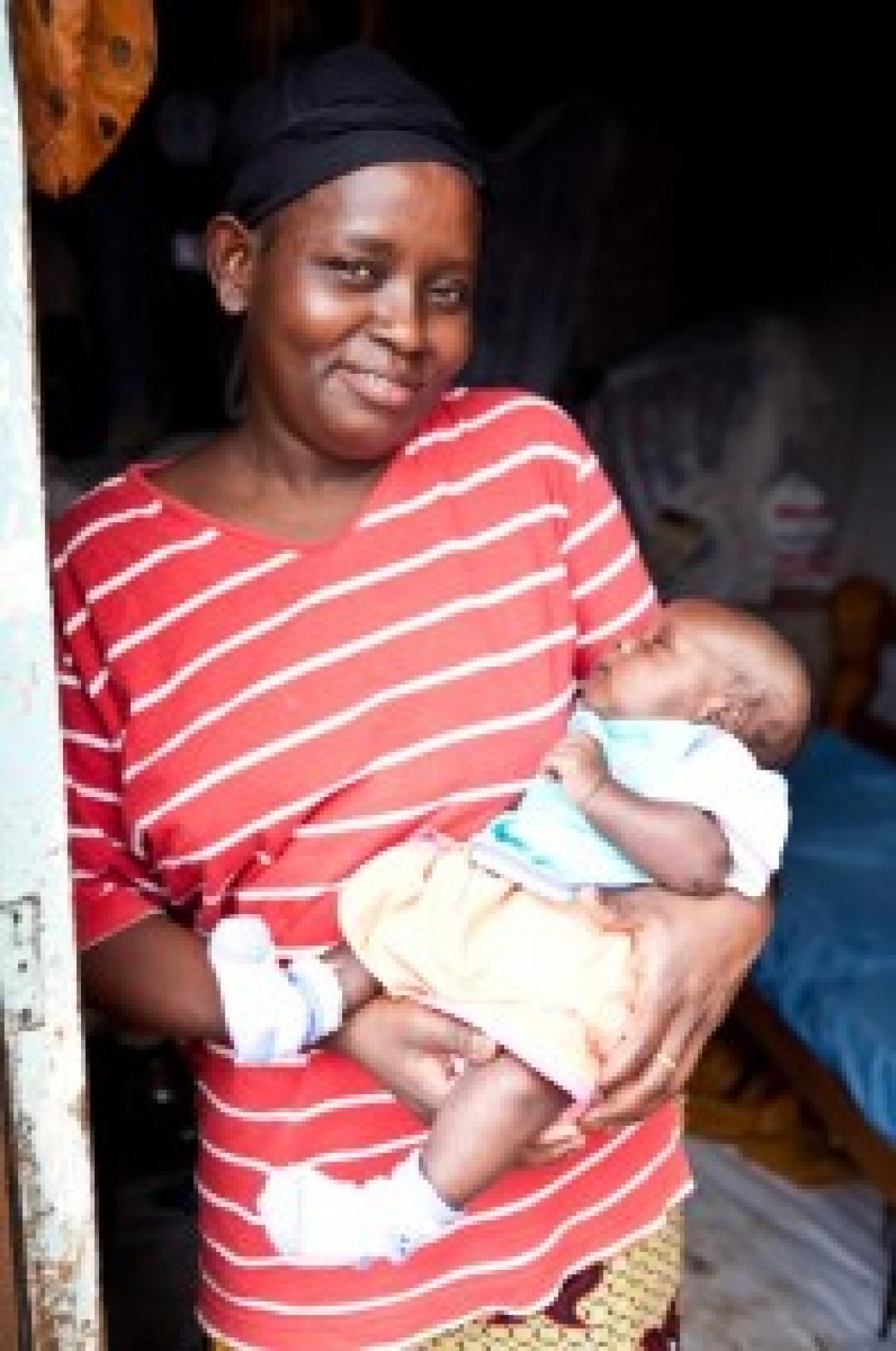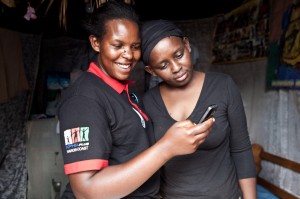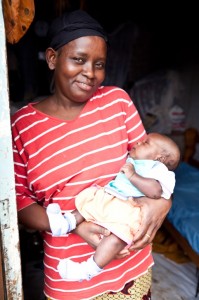mHMtaani: US-supported program empowers community health workers through mobile technology

By Jonathan Rucks, Pathfinder
In places like the Deep Sea Slum of Nairobi, Kenya, the dangers associated with pregnancy and child birth are not to be taken lightly.
Maternal mortality still claims far too many lives and quality maternal health services are not universally available or accessible to expectant mothers.
 Community Health Worker Elizabeth Mueni visits Miriam Nduku, 26, at her home in the Deep Sea Slum. Courtesy Pathfinder International.
Community Health Worker Elizabeth Mueni visits Miriam Nduku, 26, at her home in the Deep Sea Slum. Courtesy Pathfinder International.
That’s where community health workers like Elizabeth Mueni come in.
A Pathfinder-trained frontline health worker working in Nairobi, Elizabeth conducts regular home visits to 40 households throughout her community—all with the help of a mobile phone. She’s part of a new initiative called “mHMtaani,” or “mobile health for our communities.”
Through the USAID-funded APHIAplus project and support from Dimagi, Inc., mHMtaani aims to equip up to 3,000 community health workers like Elizabeth with mobile phones to support maternal and child health goals in Kenya’s Nairobi and Coast provinces. Each mobile phone includes a maternal and child health application, or ‘app,’ hosted by the CommCare software platform.
For Elizabeth, the app is a powerful case management tool that helps her with many of her duties, including registering clients, keeping track of their prenatal care visits, and counseling on the importance of delivery in a facility. The app also helps her calculate and track the due dates of expectant mothers like Miriam Nduku.
Elizabeth met Miriam long before she became a community health worker in the Deep Sea Slum. The two were more than just provider and patient—they became fast friends.
 Miram Nduku with son Richard. Courtesy Pathfinder International.
Miram Nduku with son Richard. Courtesy Pathfinder International.
Elizabeth worked closely with Miriam throughout her third pregnancy, tracking her due date and providing counseling on pregnancy danger signs. And when the time came, Elizabeth made sure Miriam was transported to the APHIAplus-supported Westlands Health Centre where she received the care needed to safely deliver her new son, Richard.
Elizabeth is an excellent example of why training frontline health workers is not only a smart investment, but an essential to achieving the global health goals of the United States and partner countries. It can cost as little as $300 to train a community health worker, and these workers in turn form the backbone of the health system – serving thousands of individuals who live in communities beyond the reach of hospitals and clinics.
Frontline health workers play a powerful role in their community, a role that someone from the outside would be hard pressed to fill. As natives of the communities in which they work, these providers foster trust and build relationships with their clients with a greater understanding and respect for local tradition and values.
And with the possibilities created by mobile health programs, community health workers are able to impact their communities in an even bigger way. In addition to urban communities like Elizabeth’s, Pathfinder also works in remote, rural communities, where one of the key barriers to accessing reproductive health is distance from a health facility. With the help of community health workers, our work goes further. When women like Elizabeth are well-trained and equipped with mobile phone case management apps, they can provide lifesaving counseling, information, and linkages services to underserved populations in the most remote villages whose needs might not otherwise be met.
Many of these workers are volunteers and are given only a small stipend to cover their travels costs. But with the tremendous value they represent to communities—likely saving millions of lives each year—these workers deserve to be fairly compensated for the time spent away from their families and other, income-generating work. Providing adequate compensation also means workers have incentive to dedicate more time to the communities they serve when they might otherwise be focused on the necessity of earning an income elsewhere.
That’s why we are thrilled to be working with partners like Visa and NetHope in Kenya, who recently selected Pathfinder for a Visa Innovation Grant, helping us to introduce a mobile payroll for community health workers in Kenya. The project will implement a pay-for-performance scheme, whereby data collected through the mobile phone application will be linked to mPesa, a mobile money service, to deliver performance-based payments to community health workers via their mobile phone. The project aims to improve the transparency and the quality of services delivered, while recognizing worker performance. It is hoped that this, in turn, will lead to better health outcomes for the clients that community health workers serve.
Time and time again, we see that frontline health workers are the first and most effective line of defense in communities facing high maternal mortality rates and in communities where there is a high unmet need for contraception. By equipping them with tools to perform their jobs better, including mobile phones, they can continue to play a crucial role in delivering community-based interventions necessary for achieving universal sexual and reproductive health care.
